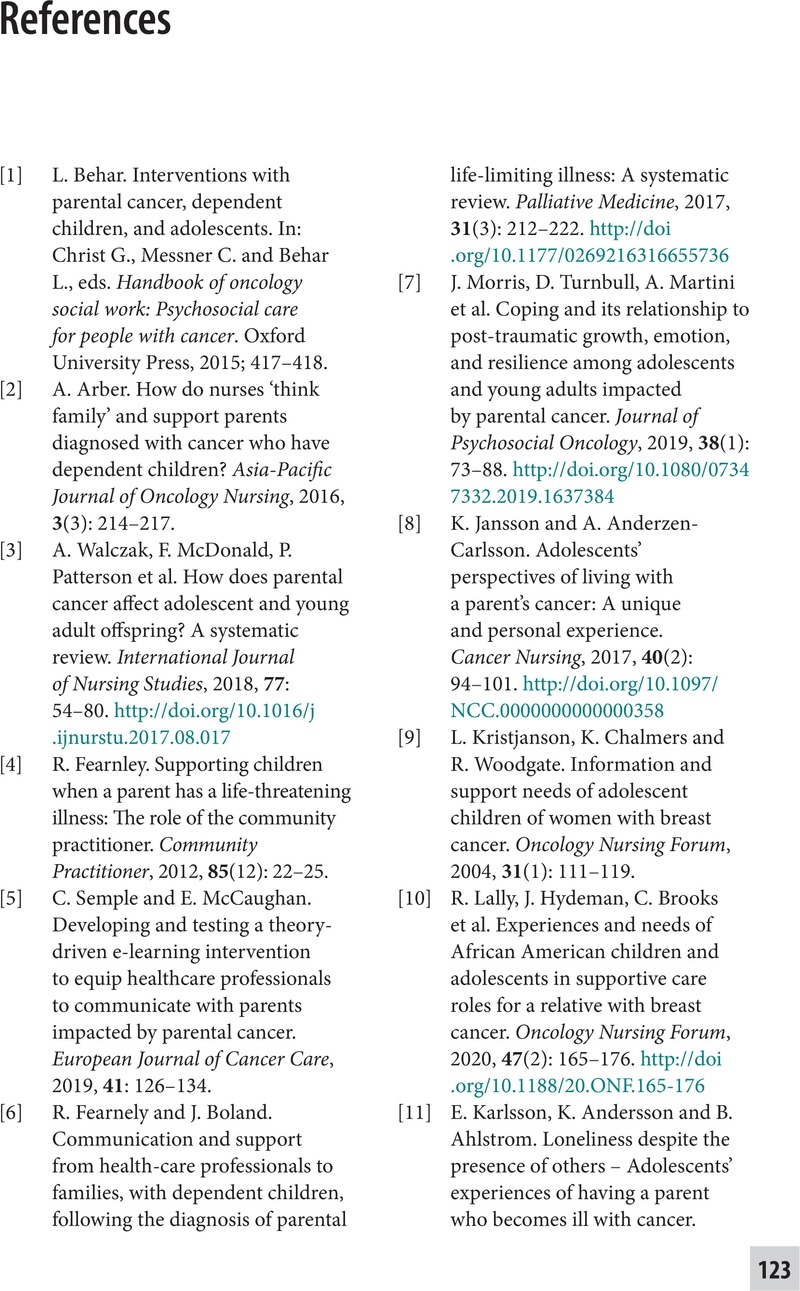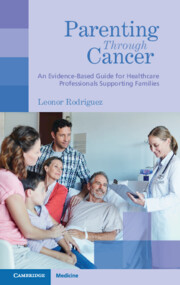Book contents
- Parenting through Cancer
- Parenting through Cancer
- Copyright page
- Dedication
- Contents
- Tables
- Foreword
- Introduction
- Chapter 1 Impact of Parental Cancer
- Chapter 2 Illness Stages
- Chapter 3 Parenting Culture and Family Dynamics
- Chapter 4 The International and Cultural Context of Cancer
- Chapter 5 Supporting Children and Young People Through Parental Cancer
- Chapter 6 Evidence-Based Cancer Interventions
- Chapter 7 Terminal Cancer and Bereavement
- Chapter 8 Self-Care for Practitioners
- References
- Index
- References
References
Published online by Cambridge University Press: 15 September 2022
- Parenting through Cancer
- Parenting through Cancer
- Copyright page
- Dedication
- Contents
- Tables
- Foreword
- Introduction
- Chapter 1 Impact of Parental Cancer
- Chapter 2 Illness Stages
- Chapter 3 Parenting Culture and Family Dynamics
- Chapter 4 The International and Cultural Context of Cancer
- Chapter 5 Supporting Children and Young People Through Parental Cancer
- Chapter 6 Evidence-Based Cancer Interventions
- Chapter 7 Terminal Cancer and Bereavement
- Chapter 8 Self-Care for Practitioners
- References
- Index
- References
Summary

- Type
- Chapter
- Information
- Parenting through CancerAn Evidence-Based Guide for Healthcare Professionals Supporting Families, pp. 123 - 136Publisher: Cambridge University PressPrint publication year: 2022



